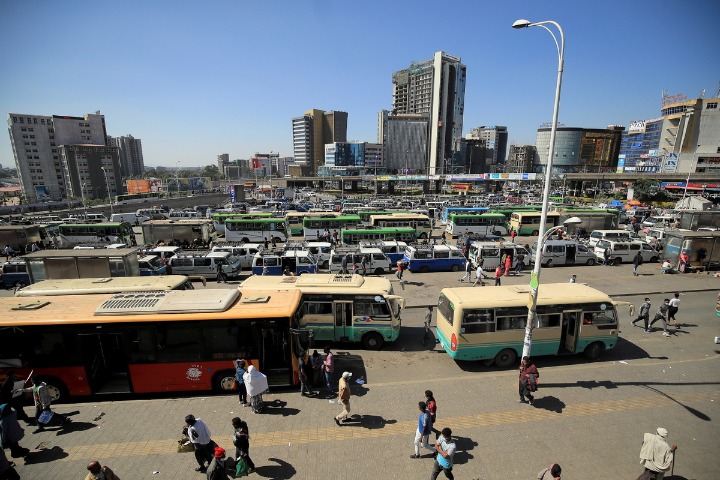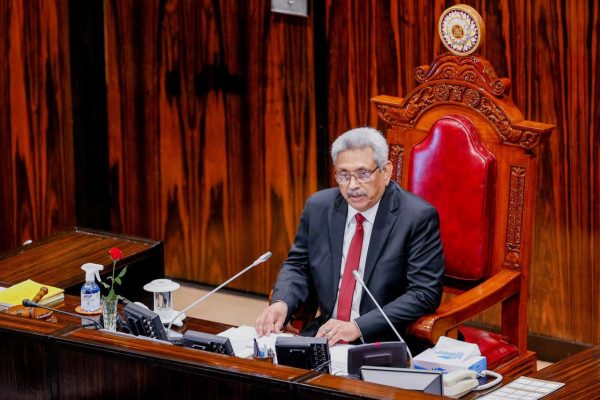IMF bailout alone won’t solve Zambia’s debt crisis

As Zambia entered talks with its creditors to resolve its debt crisis, Hannah Ryder, CEO of China-based African consultancy Development Reimagined, spoke to African Business about the country’s chances of securing an IMF bailout and its prospects for economic growth.
What can we expect from the talks? What might a debt restructuring plan look like?
This is the first meeting of creditors so don’t expect too much. The main part of the meeting will be for Zambia to advocate for debt restructuring and relief and has announced that it will do so. The debtor presenting his case at the beginning is a common practice for Paris Club committees.
The difference this time around is that a few other countries that don’t usually participate in these committees will be around the table – for example, China will be represented and actually co-chair, and it looks like some of the multilaterals will be there, such as IMF, although it is not clear if the AfDB will be present.
However, and as usual, private sector players will not be there. Zambia owes a large portion of its debt to private and commercial lenders around the world, which will make discussion difficult as Zambia cannot be guaranteed of any plan to manage these debts. In any case, the decisions will still take several meetings of creditors.
Also, different creditors will be looking for different things at the meeting. Paris Club lenders will be interested in Zambia’s presentation of the IMF’s debt sustainability assessment, and thus in Zambia’s plans to cut spending – for example by reducing subsidies or increasing the privatization, which are typical IMF policy prescriptions.
Chinese lenders, on the other hand, will look to Zambia to lay out its growth plans – as many of the projects China has lent to require a vibrant and growing economy to generate a return or even provide tax revenue to be recycled in debt repayments.
The challenge for Zambia in this context is twofold:
- First, does Zambia know that this is what different creditors want to hear and has prepared to address both sets of concerns. There is a risk that, especially convened in Paris, Zambia speaks the most to the first IMF-like concern.
- Second, these two perspectives could be in conflict – IMF prescriptions could actually dampen growth, demand and incomes in Zambia, while the means to encourage growth may involve more spending, for example building more infrastructure to create jobs and markets, increase productivity and tax revenue, etc. These suggestions are unlikely to be made by the IMF in its assessment.
This highlights the fundamental challenges faced by African countries and other low- and middle-income countries when it comes to debt restructuring.
All too often discussions of debt restructuring focus on reducing the quantity of debt – but there is both theory and evidence to suggest that the quality of debt matters just as much, and that is it. which requires careful consideration in the discussion.
In fact, a Zambian response to debt challenges that aims for “quantitative easing” – i.e. more spending in an economy to meet economic challenges (especially externally driven ones like Covid19 ) is the best answer, not cutting expenses. Indeed, this is what many high-income countries have themselves done in response to Covid19.
Zambia should in principle have the right to do the same, even if its debt is owed abroad. That doesn’t mean he’s irresponsible.
Having China and other emerging economies in the room when Zambia makes its case could help Zambia counter demands to cut spending to deal with the crisis it faces, but it’s unclear if the government adopts this type of economic perspective. But that will be the key question for analysts to consider coming out of this particular meeting.
Is Zambia unlikely to receive funding assurances from its bilateral creditors to unlock a $1.4 billion bailout package from the IMF? And will the bailout solve its unsustainable debt?
As above, Zambia may well be able to gain assurances from this meeting to unlock the IMF program, and possibly World Bank financing as well. The IMF appears to be willing, and some creditors have said that Zambia’s recent actions and promises to increase transparency and debt management could also be useful to them in supporting an IMF program.
However, in terms of sustainability, the problem is Zambia and all creditors do not have to take on any relief or restructuring from private (non-Chinese) lenders, which still puts great pressure on Zambia’s fiscal space.
Moreover, the interest rates on these debts could continue to rise – because they are flexible – as happened for many countries in the 1990s, which could mean that Zambia must continue to reschedule and review his plan.
Unless Zambia has a clear plan to revive its economy, taking into account the risks of rising interest rates and a risky and uncertain global economy, it is very difficult to know whether a bailout today will be really useful in the medium term.
It all depends on the quality of how Zambia spends now – and as I said, if that spending is not conducive to growth, I am not confident of meaningful progress.
Hichilema is seen as a rising star for reforms and democracy on the continent – does he live up to the hype?
This question assumes that reforms and democracy guarantee development. There is little evidence for this. Zambia – like many African countries – has a very difficult history of colonialism and dependency to unlock its own endogenous development.
Having been democratically elected, if Hichilema can use reforms to break this cycle, he will live up to the hype. But right now, I’m not convinced that will happen. There are many voices inside and outside Zambia that ignore or are invested in this history, which makes this type of reform difficult to pursue.





![[Press release] Debt crisis: a failed G20 summit](https://www.cadtm.org/local/cache-vignettes/L710xH373/f0bd231bf33e0619051e008da75a42-274d7.jpg)
